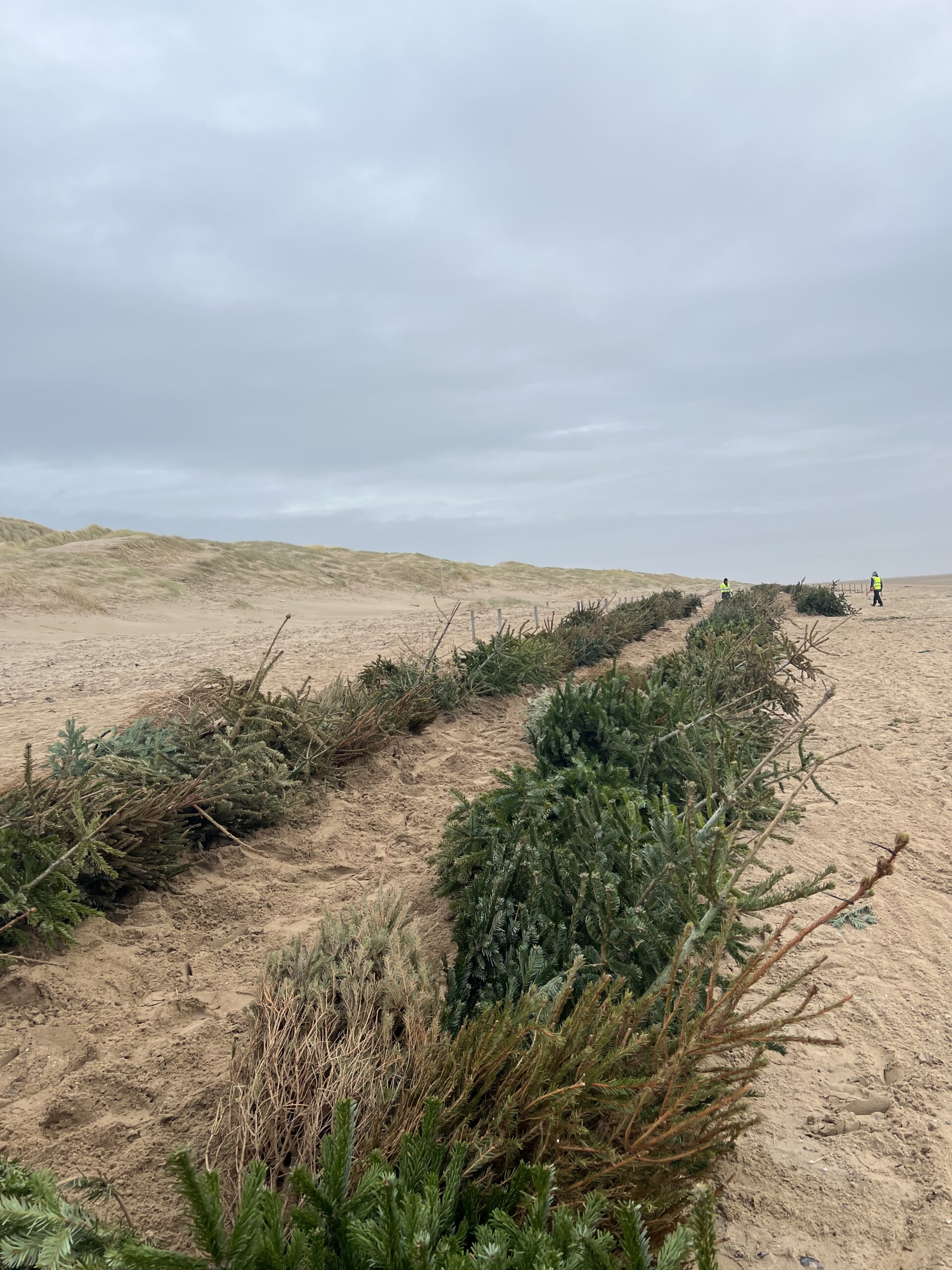This blog been written by a member of the Newground Flood Team.
With Christmas fast approaching, it is easy to get excited about putting up decorations and buying gifts for friends and family. But with the massive amounts of waste that results from the Christmas season, why not take some easy steps this year to be more sustainable and reduce impacts on the environment, including flooding!
To help you out, we’ve put together some handy tips on how you can have an all-round more eco-friendly and sustainable Christmas! From what presents you buy, to what to do with your old tree, there are lots of things to think about and taking any small step will help towards a more sustainable world!
Flood related
Why not give a practical gift that can help someone reduce the risk of flooding to their property! Some ideas include planters or a water butt which collect rainfall that can then be used to water plants.
Second hand/make your own
Instead of buying brand new this year, you could source presents from second hand items by having a good old rummage in your local charity shop – you never know what you might find and this will help save some pennies too! Handmade or up-cycled presents are also a great idea – why not get crafty by knitting your friend a scarf or painting your family member a picture.
Plastic free
If you want to buy new toys or gifts, opt for plastic free presents. There are lots of plastic free shops popping up now, with gift boxes and other Christmas present options available.
Wrapping
Each year in the UK we throw away over 226,000 miles of wrapping paper! Avoid wrapping paper that is laminated and has glitter on it as this can’t be recycled and instead, choose recyclable paper or use old newspaper as a quirky wrapping material. You can also reuse gift bags from previous Christmases or birthdays, or buy plastic free ones.
If you’ve made the effort to use recyclable wrapping paper, then why not avoid using plastic tape too! As an alternative, you can use recyclable paper tape, or get creative and tie your presents up with string that can be removed and reused.
Christmas trees
If you have an artificial tree, make sure you reuse it for as many years as possible to get full use out of it, as they are made from materials that can’t be recycled! If you need a new one, look for a second hand one or one made from recyclable or degradable materials.
If you prefer a real tree, choose one that is grown locally to you in the UK. You could also consider renting a tree which will be re-potted after Christmas for use again the following year.
In the UK every year, around 7 million Christmas trees end up in landfill, generating 100,000 tonnes of greenhouse gases! Instead of throwing them away, a fun and sustainable idea is to donate your tree to a local dune planting activity to regenerate dune environments!
The Fylde Sand Dunes Project is a partnership between The Wildlife Trust for Lancashire, Manchester and North Merseyside, Fylde Council and Blackpool Council and it is funded by the Environment Agency. Each new year, they collect and recycle old Christmas trees to provide improved coastal defence against sand and sea for residents of Lytham, St Anne’s and Blackpool. The Christmas trees are planted to help the sand dunes strengthen and grow. The dunes trap windblown sand, protect against high waves and flooding, and provide habitat for wildlife. For more information on the Fylde Sand Dunes Project, click here. Information on Christmas tree collection and drop off points, as well as Christmas tree planting events in the Fylde area can also be found on the previous link, as well as in our blog here.

Fylde Christmas Tree planting. Image: The Flood Hub
Decorations
Handmade decorations can be much more meaningful and can be made completely plastic free from recyclable materials such as card and string. Instead of buying new baubles and lights every year, reuse decorations and take care to fix broken electricals instead of throwing away and buying new.
Christmas crackers
Although lots of fun, crackers also contain lots of plastics that usually end up straight in landfill! There are many eco-friendly alternatives out there with some supermarkets selling eco crackers. You could also have a go at making your own!
Locally sourced ingredients
To cut down on your carbon footprint this Christmas, you can aim to buy your Christmas dinner ingredients from local and independent farms and greengrocers.
Reduce waste
Take care to only cook enough food that you and your family will need, and dispose of veg peelings and scraps in the compost. If, inevitably, you do end up with leftovers, make sure you freeze them for future meals!
Don’t pour fats down the drain
A typical Christmas dinner can contain lots of animal fats and food roasted in oils. This year, ‘think before you pour’ and be careful not to pour any fats, oils or grease down the drain, as even the smallest amount can add to the build up to fatbergs and cause sewer blockages! Instead, wipe up fats with kitchen paper and dispose in the bin.